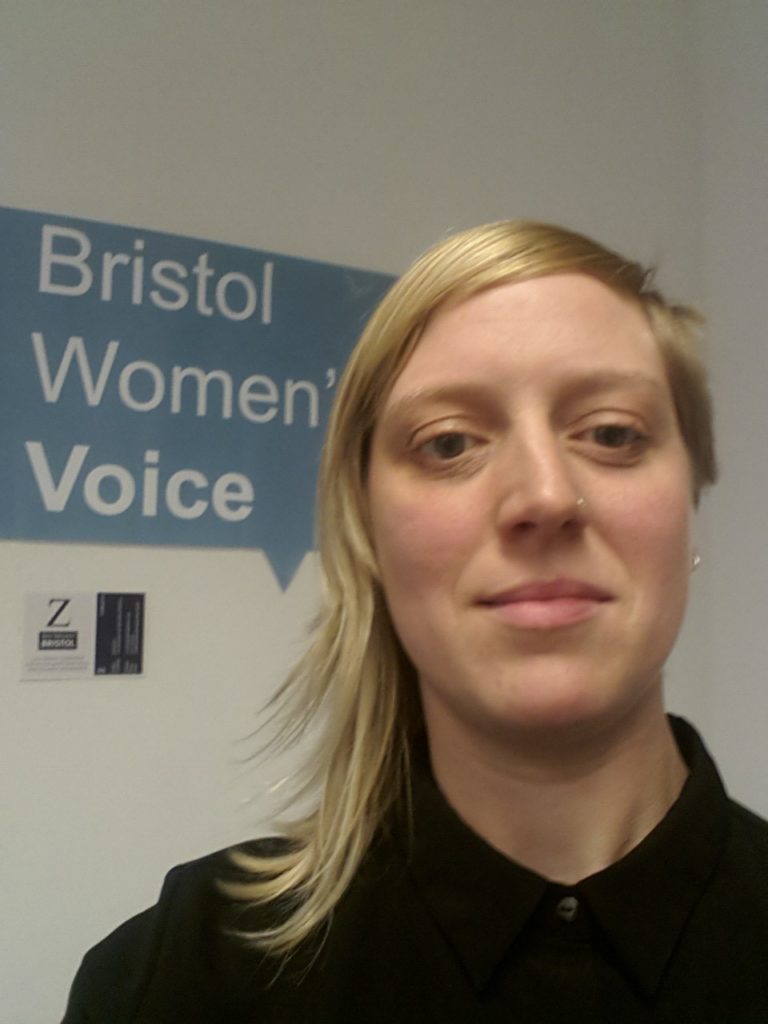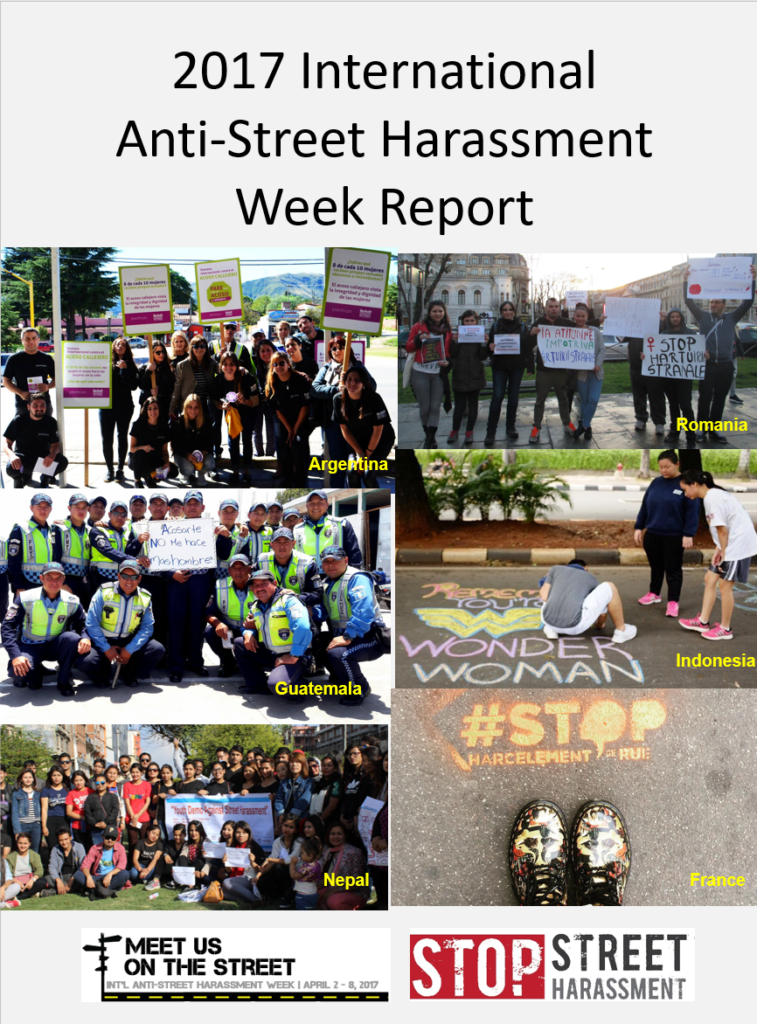Annabel Laughton, Gloucestershire, UK, SSH Blog Correspondent
 For the last in my series of blog posts speaking to activists in Bristol and the UK, I spoke to Charlotte Gage, Partnerships Officer at Bristol Zero Tolerance (BZT). This is an initiative that was set up by Bristol Women’s Commission in 2015, and its vision is to “make Bristol zero tolerance to all forms of gender-based violence, abuse, harassment and exploitation”.
For the last in my series of blog posts speaking to activists in Bristol and the UK, I spoke to Charlotte Gage, Partnerships Officer at Bristol Zero Tolerance (BZT). This is an initiative that was set up by Bristol Women’s Commission in 2015, and its vision is to “make Bristol zero tolerance to all forms of gender-based violence, abuse, harassment and exploitation”.
BZT does not run frontline services but is working towards becoming an umbrella for all relevant services in the city, aiding coordination and collaboration. Gage works extensively with business, offering training and awareness-raising to create a safe culture and change attitudes and behaviour. BZT can also advocate for particular policy positions on gender-based abuse, something frontline organisations often don’t have time for. Local police and the local council, for example, have drawn up action plans in conjunction with BZT, who can then hold them to account.
So what’s happening specifically with street harassment? Gage recently started a street harassment campaign. “Local women were talking about it, so I felt it was important”, she says. The campaign is in its infancy as yet, being launched in International Anti-Street Harassment Week this April. At present Gage is focusing on gathering data to get a better picture of street harassment in the city. She has a researcher collecting data via local networks and specific communities. BZT also have a filmmaker recording women’s stories of street harassment.
Where the campaign goes after that will depend on the outcomes, but de-normalising street harassment and empowering people to speak out, either as victims or bystanders, is key. Gage explained she has had discussions with the local Police and Crime Commissioner and local organisation SARI (Stand Against Racism and Inequality) about the best way to enable this. “The police always say that if it’s not reported there is no data, and therefore there’s no problem”, she says, but exactly how street harassment is recorded is not straightforward. Gender is a “protected characteristic” under the UK Equality Act 2010, but street harassment isn’t automatically recorded as a hate crime, as, for example, attacks on someone because of their race or a disability would be. Victims have to specifically request that the offence is logged by police as “other – gender”, and even that won’t tell the whole story, because gender could mean male or female, masking the fact we know the vast majority of street harassment is targeted at women.
Gage is considering if BZT might lobby Avon and Somerset police to follow Nottinghamshire police’s lead and add a hate crime category of misogyny (the #NotACompliment campaign calls for this to be rolled out by police forces nationally), but is also wary of completely relying on a criminal response. “Not everyone wants to report to police. We want to give women different options”. One of these options might be a toolkit for people experiencing harassment, and bystanders.
BZT is clearly doing incredible work, but it’s not easy. Apart from Gage, BZT has just one other paid member of staff, Gage’s assistant, and they are both part-time. The initiative is funded by Public Health as it is prevention work, but like many publicly funded services in the UK, money is running out. It’s obvious that her drive and commitment are essential to the ongoing survival and success of this important work. As we finish our chat, Gage is clear that the issue of street harassment, which nearly all women experience, is a good way into a broader understanding of violence and abuse against women. “We need to get the message out there – street harassment is part of a culture which normalises and condones gender-based violence”.
Annabel is involved in campaigns for human rights, mental health, environmental issues and social justice. She has an honours degree in Classical Studies, a diploma in counselling, and works in Higher Education.

 Are you the kind of person who tells someone when they have something stuck in their teeth, or do you let it slide? What about toilet paper on their shoe?
Are you the kind of person who tells someone when they have something stuck in their teeth, or do you let it slide? What about toilet paper on their shoe?